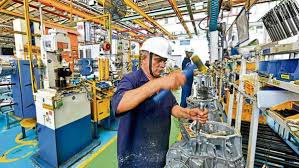Source: livemint.com
With the digital makeover of the economy, which has allowed for transactions carried out by individuals and companies to be traced and recorded in real-time, traditional methods of collecting economic data, such as in-person surveys and interviews, run the risk of becoming outdated.
Digital records of such transactions—whether online or brick and mortar—at a product level and the growing ability to store and analyse such information offer an opportunity to better capture production and price statistics, says a new National Bureau of Economic Research (NBER) study authored by Gabriel Ehrlich of University of Michigan and others.
Such sales and price data, obtained directly and simultaneously from a single source, will also greatly refine measurement of economic activity and productivity at a product-level, according to the authors.
Advances in research and technology have also made it possible for digitized transactions data to be innovatively used to capture economic activity, the authors suggest. For instance, the “unified price index” technique developed by Redding and Weinstein (2018) makes it possible to capture the effect of changes in product appeal on their prices. However, the authors warn that more work is required to refine these techniques before they are incorporated by statistical agencies. Such agencies may not find it easy to access and process such kind of data, they argue.
Building key national indicators from product-level transactions data would also necessitate re-engineering of the statistical architecture in most countries to change how data is collected and accessed for official statistics. For instance, the simultaneous collection of price and quantity data requires combining the data collection activities that are currently spread over multiple arms of the statistical machinery. Such a shift, however, may be inevitable as non-response rates and costs of traditional surveys escalate over time, the authors argue.
